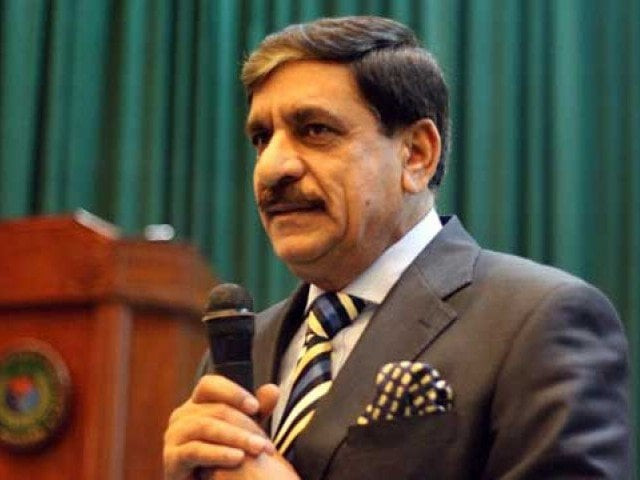A shrinking domain
The National Security Committee has met just four times since the PML-N was elected in 2013

Lieutenant General (retd) Naseer Khan Janjua. PHOTO: DEFENCE.PK
With the best will in the world, it is not possible to see Mr Aziz as a man at the top of his game, and he clearly has not been paying attention to the national security aspect of his role. The National Security Committee has met just four times since the PML-N was elected in 2013 and the last meeting was over a year ago. For a country such as Pakistan, with numerous concerns on the foreign policy front, to function at its best without a foreign minister is nigh impossible. For the prime minister to refuse to make an appointment to the post leaves a yawning gulf in governance that the military was able to see and presumably decide that enough was enough. There have been foreign policy missteps of late — the serial misunderstandings that surrounded the meeting between the prime minister and Indian Prime Minister Narendra Modi over the Ufa agreement that was no agreement at all; as well as a clumsy handling of relations with Afghanistan all suggest that foreign policy is not the prime minister’s forte. The ceding of space to the military in governance matters comes in the wake of the failure of civilian politicians to effectively create a narrative that counters terrorism, and is highly selective about which organisations or individuals appear to enjoy an unspoken immunity. With governance in the hands of the B Team, small wonder that the A Team takes the fore.
Published in The Express Tribune, October 27th, 2015.
Like Opinion & Editorial on Facebook, follow @ETOpEd on Twitter to receive all updates on all our daily pieces.














COMMENTS
Comments are moderated and generally will be posted if they are on-topic and not abusive.
For more information, please see our Comments FAQ